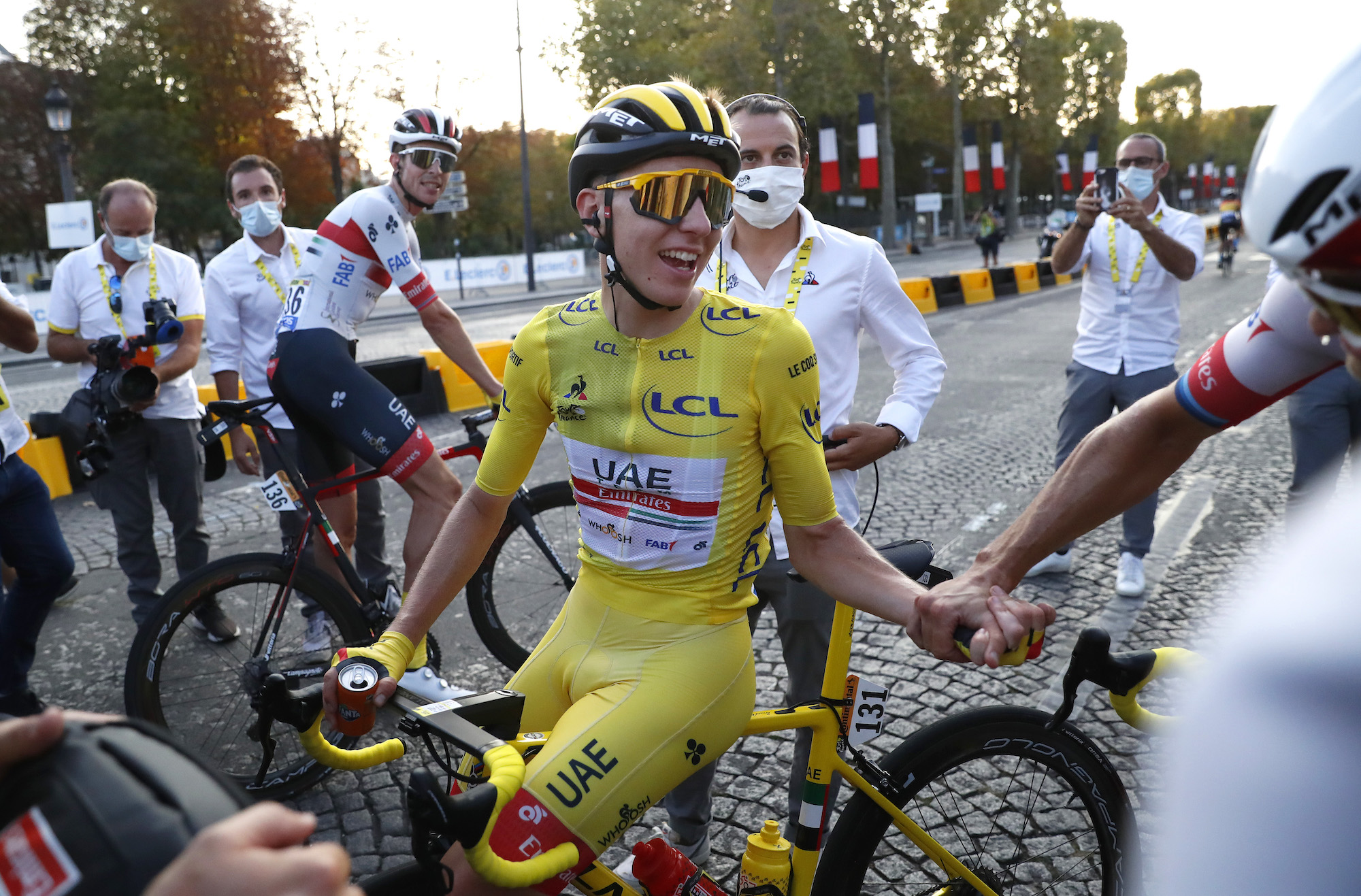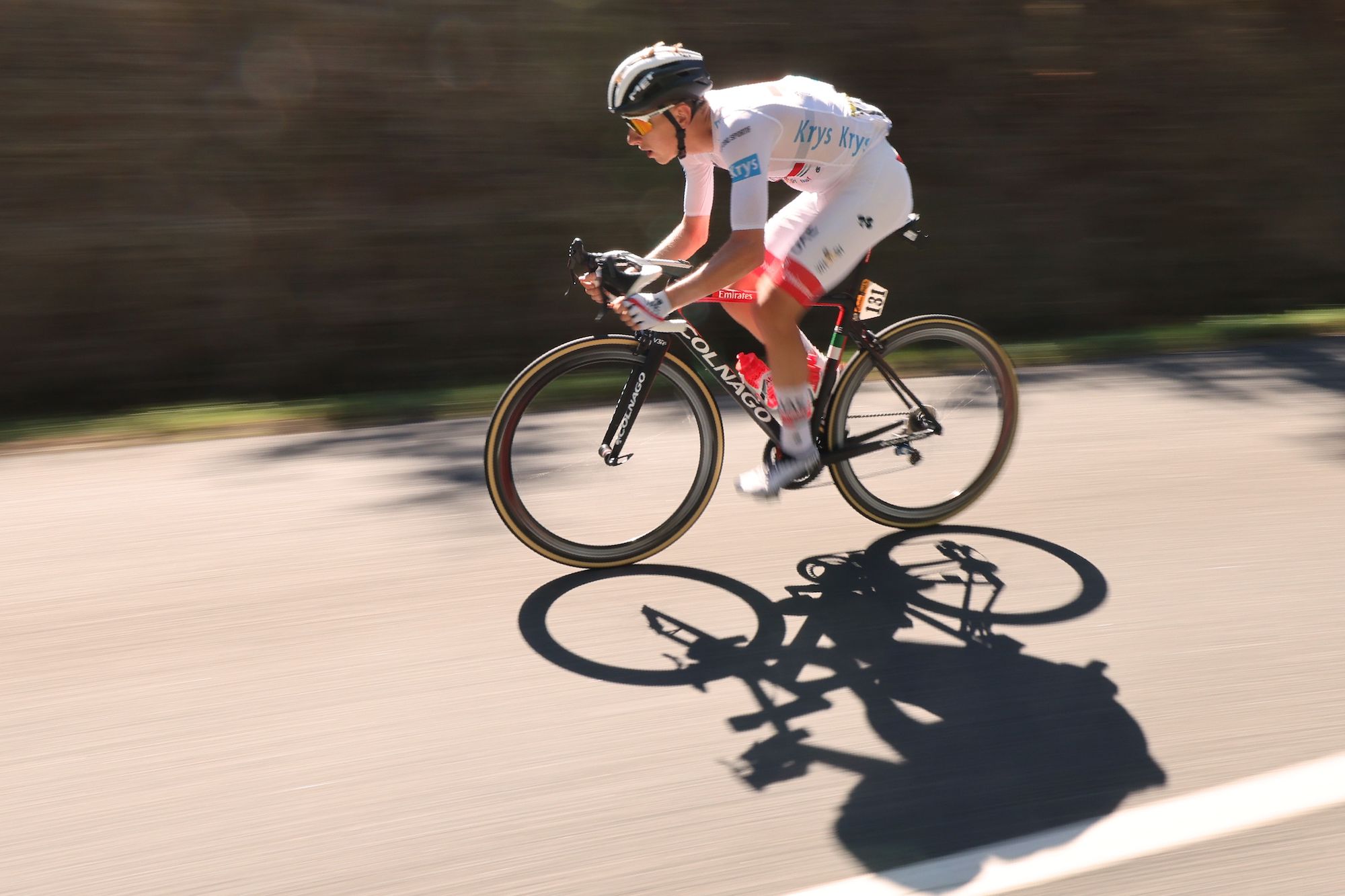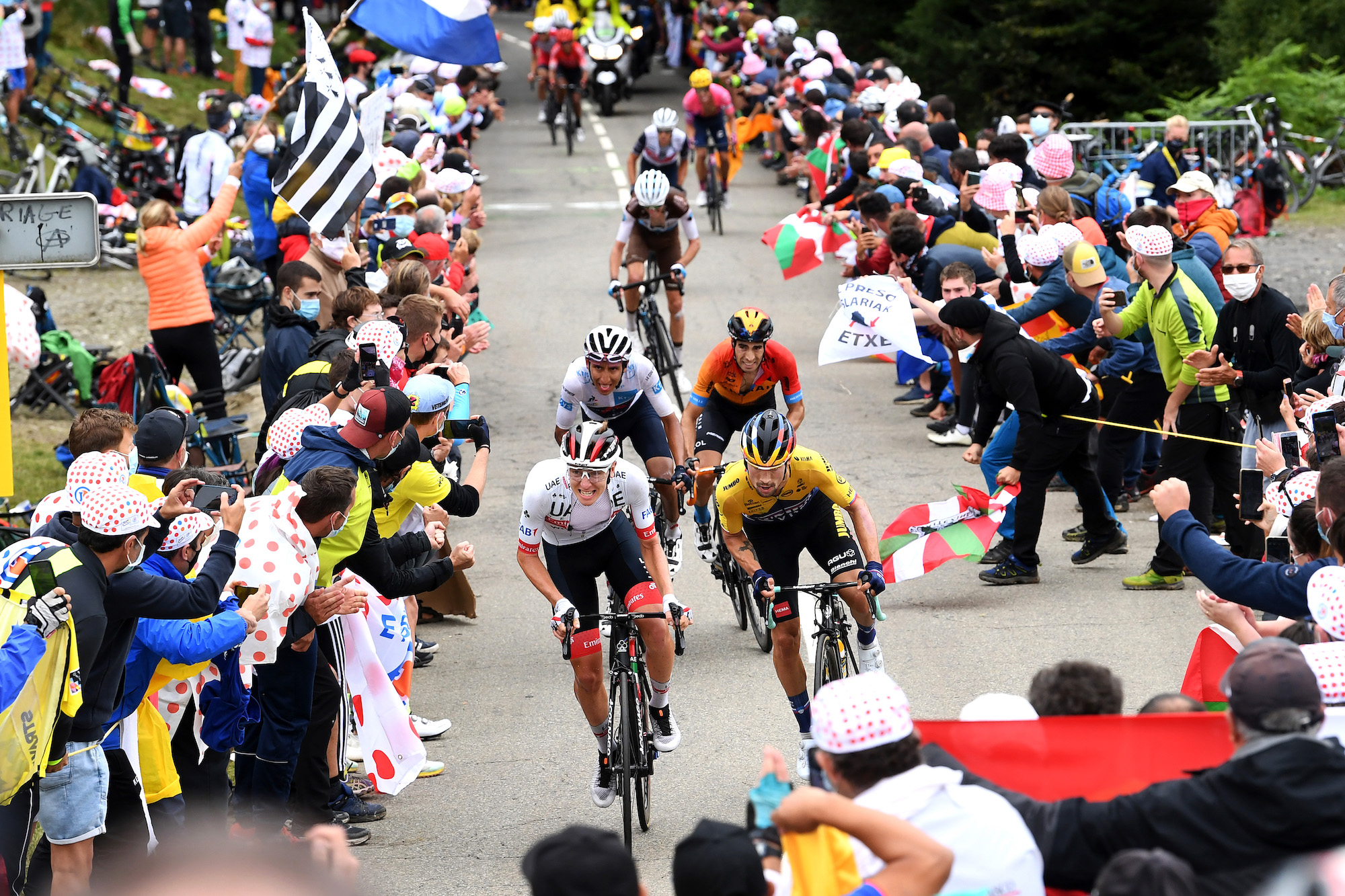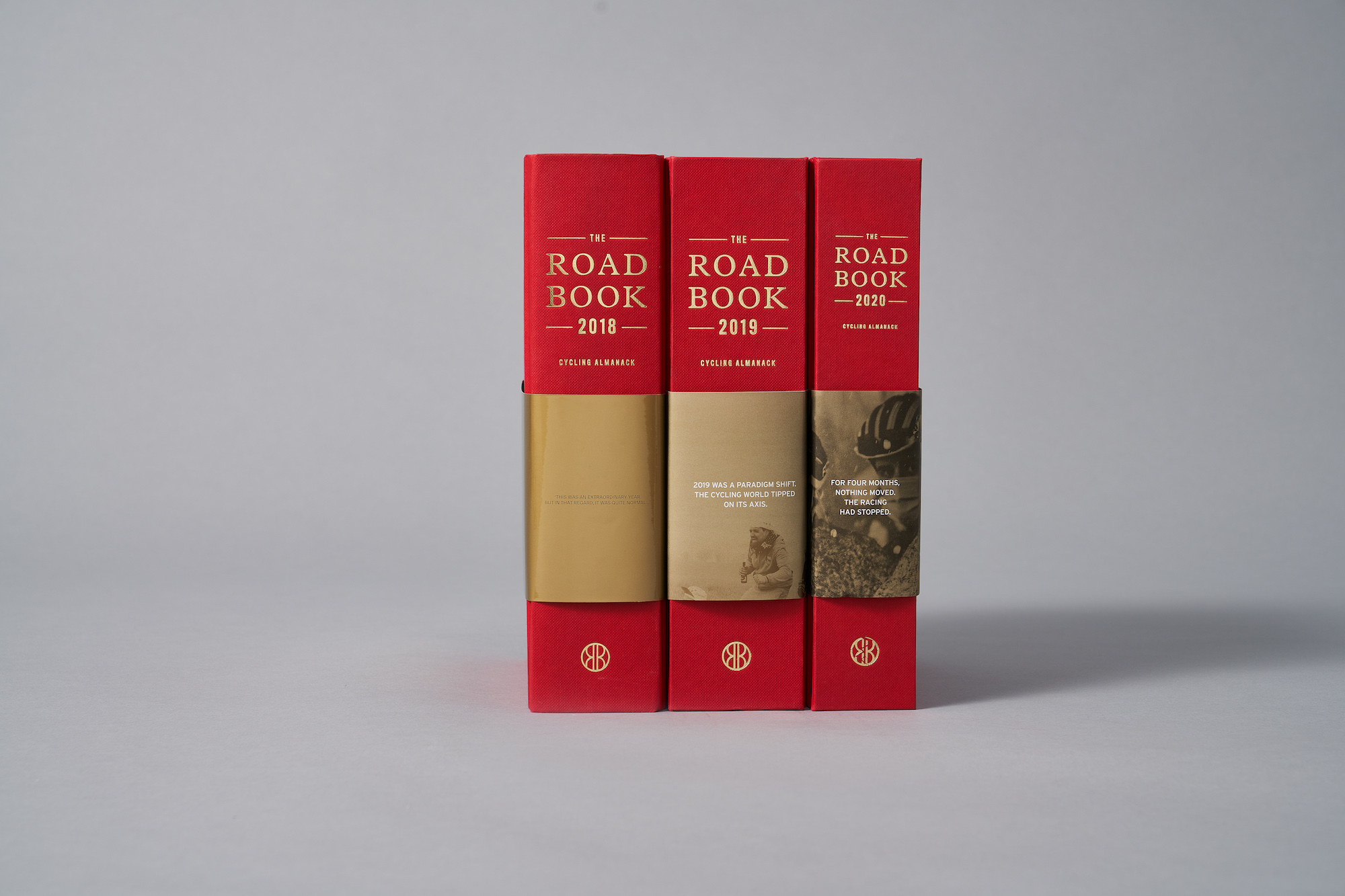Allan Peiper: 'I've seen a lot of champions come through my ranks but Tadej Pogačar is different'
The UAE Team Emirates DS shares his memories of winning the Tour last year

Australian Allan Peiper, the veteran of five Tours de France as a rider, is the principal sports director with UAE Team Emirates. Having previously worked with HTC Columbia, Garmin and BMC, there are few more qualified practitioners in the sport. In 2019 he took time away from the sport as he was battling through chemotherapy, after a second recurrence of prostate cancer. His stewardship of the prodigiously talented Tadej Pogačar – and the meticulous preparation he devoted to the decisive day of racing at the 2020 Tour de France – produced a historic stage that will be talked about for decades to come.
Peiper wrote about his experience of winning last year's Tour for the 2020 edition of The Road Book. Cycling Weekly readers can get 20% off the 2020 book, or 10% off the complete collection, along with some extra goodies thrown in, by using code RBTDF21 at checkout. The link to purchase is here. See below for full details.
I got some tears in my eyes. I remembered back to a year ago, to July 2019, when the Tour had passed my house in Geraardsbergen. Back then I was not even capable of walking down to the corner of the street to see the race. And here I was now in Nice, you know, as the first director of the Tour, with a kid who could do a great ride. There was quite a bit of emotion and gratitude at being back at the start of the Tour again.
Tadej. The first real impression he made on me was last year, in 2019. We were at the Cadel Evans Great Ocean Road Race in Geelong. Tadej was there and did a reasonable race. But we woke up the morning wanting to leave and he found out he’d lost his passport. It was Australia Day, so obviously everything was closed. I used all the contacts I knew to get in touch with the consulate and then with the embassy and got papers drawn up. I had to find him a hotel room and change his flight, then get in touch with Slovenia to check they were OK with him coming back. He stayed very calm in all of that situation, where most kids would have freaked out. Of course he was nervous, but he was definitely not worried, which was a surprise.
Last year he won the Tour of Algarve and I was there as well. I realised he was a kid who really listened to what I said. On the last day, he didn’t panic on the final climb and rode his own tempo, letting them go. You know, he rode better than I suggested. He pulled them back in the final. Staying calm under stress – that was my first impression of him.
I was prepared when I got to Nice. In the first meeting we did a round table and I asked each rider how they felt they were going and what they expected from the Tour de France. We set the expectation that we were riding for the top five, with a dream of the podium. I think probably we were the only two that really believed it.
That relationship between Tadej and myself – that trust element between us – was already really firm going to the Tour. I think we were in sync but in different ways. Without any prior experience, winning the Tour de France is quite intangible. But there’s a deeper confidence about what’s possible. And I think he had confidence in himself about what was possible. In a different way, I had a deeper confidence in what he could do.
The latest race content, interviews, features, reviews and expert buying guides, direct to your inbox!
Taking the yellow jersey on stage 1 with Alex’s [Alexander Kristoff] win really set the tone and took the monkey off our back. As I explained to the boys, the sponsor had stayed on board, kept paying us, kept confidence in us, when they’d laid off thousands of people and planes were on the ground. Through difficult times they kept confidence and kept us going. So we had something to repay.
But the stage to Lavaur, that was a blow. I remember finishing the stage and standing outside the bus just fuming. How we could miss 70 riders being in front and not have anybody there?
Tadej had punctured and they crashed in front of him and he wasn’t in position in the crosswinds. But nobody else was with him and no one was together. When I did go into the bus to debrief, I just said in a few words, ‘How could we miss that break? Tell me how that happened.’ And I went from one rider to the next, and they all told their story. Basically, we buried the hatchet there and we just got on with it after that. But I think, in hindsight, if we hadn’t lost that time, he might have been forced into the yellow jersey. They would have taken us to the ropes and that wouldn’t have been good. We had De La Cruz with a broken coccyx, Formolo who’d crashed and broken his collarbone, Aru who’d gone home and Marcarto who had a bladder infection. We were on our knees, you know, basically as a team.

After stage eight, he was on the rollers. He said to me, ‘I’m going to attack tomorrow.’ And I said, ‘No, you won’t to attack tomorrow. It’s too early, you need to wait.’
It was a good thing he didn’t listen to me. That win into Laruns was fantastic. It was a fantastic reply to what had happened in the crosswind. I remember saying in our chat, ‘I’ll tell you one thing that you’ve got to remember: these guys are not your friends. They are going to cut your throat whenever they have the opportunity. And you need to remember, the day when they’re on their knees, that you need to do the same thing.’ I think he had that in the back of his mind because he went quiet. After that, whenever he attacked, he was ruthless.
Jumbo-Visma. What a fantastic team. They looked unbreakable, and you couldn’t see a crack in their armour, especially on the Col de la Loze. I remember going into Tadej’s room that night. For all that he is a positive person, he was quite subdued and upset, as was I as well.
We’d hoped to take 17 seconds but had lost time instead. At 30 seconds, we would have had a shot, but we saw it going 15 seconds further out to 57 seconds. That gap was more or less the breaking point of the impossible. It was going to take a big effort by him and some other circumstances to make that back.
Tadej and Primož have known each other very long time, since they were boys. They do have a really deep respect. Sometimes in the Tour, journalists were suggesting we had an easy ride because we could hide in the shadows of Jumbo-Visma. And to a certain extent, that’s how it was. They had an unspoken agreement between the two of them, which brought it all to a head for the final time trial. So, being able to bring it down to a final showdown on the Planche des Belles Filles was the only way it could go for us. It was the perfect scenario.
I laid awake for a long time just thinking about the steps building up to the Tour. I remember driving down to La Planche des Belles Filles two days after lockdown finished in France and wondering what the hell I was doing in the driving rain and thinking, ‘Who really cares if I drive down here and have a look at this course, you know? I’m doing it but no one’s asked me to do it, and is it going to make a difference?’ When I got there, I drove the course. I rode it the next morning to get an idea of the gears they might need. And then I drove it again in the afternoon to get my course notes correct and have another look. I knew how critical it was, how it was so important that I made the effort then because that gave us the basis to go back the next month with the equipment we needed. We did a full simulation with the gears we proposed, with the wheels and the tyres and the tyre pressure and the skinsuit, and made sure it was dialled. So actually, when it came to TT day, we had to do nothing – everything was fully dialled.
He came an hour and a half before the start. He got on the rollers. He had a brand-new bike that day – brand new, never ridden, not even for 10 metres. I rode up and down the street about ten times checking it, then he just rode through the car park and back. And that was it.
He got to the start line and he was ready. He poked his head outside the bus just before he started his warm-up, because he’d seen the mechanics building a white frame, expecting him to have the white jersey. He had a smile on his face, and he said to me, ‘So they don’t think I can do it?’
I’d asked Andrej Hauptman [Slovenian national coach and UAE Team Emirates sports director] to come in a few days before and be there for the time trial. So we had Andrej in the back of the car as well. I could give Tadej the course notes and the tactical directives and the time splits. But Andrej could give him some motivational talk in Slovenian from the back seat. I really felt that was going to be critical. I mean, 20 days in, with accumulated fatigue, stress and all the rest of it, it was always going to be difficult.

I gave him the truth. Like most riders on that route, he doesn’t want to be told rubbish. I said, ‘Don’t change the tempo or change the pacing strategy. Stay exactly the same because we don’t know how Roglič is playing the time trial. Maybe he’s planning a negative split or he’s saving more for the final climb. So don’t get carried away and don’t change it. Don’t change anything.’
But when we got the second split at the bottom of the climb, I sort of had an inkling: there’s no way Roglič could have planned for that. It wasn’t going right. Now we were in a zone where there’s no mobile reception, no TV reception. The race radio was hardly working. But we did plant someone halfway up the climb to give this handheld split time. He showed us 1 minute 10 seconds, but I didn’t want to tell Tadej that because I didn’t know if it was accurate.
He was riding for yellow on the climb. Tadej said he couldn’t hear anything because of the people screaming. So that was all fine – he knew what he had to do. He knew the climb, so there was nothing more to do. But we didn’t celebrate until we absolutely heard Roglič come across the finish line. People told me, from watching television, what a cliffhanger it was watching the time trial and seeing the times on the TV. But for me in the car, I was so focused on just what we were doing. I couldn’t take any of that in, you know, it was all just about getting to the finish line as fast as we could.
You forget the kid was just 21 years old. A second-year pro is winning the yellow jersey, the polka-dot jersey, the white jersey? I don’t know, you just can’t have a correct perspective on what’s been achieved and what’s been overcome.
It has forged an extraordinary link between us. I’ve been a director for a lot of years and seen a lot of champions come through my ranks. They’re all dear to my heart.
But with Tadej it’s different because what I get from him is total confidence. That bond is there, but it’s one that only we know about, and it’s in our hearts – deep-set, unconscious. We don’t drink coffee together and we’re not on the phone three times a week to each other. It’s hard to explain.
Maybe it’s a sort of father–son thing. You know that as a father you don’t need to please your son all the time. It’s a wonderful relationship.
Can we just enjoy the moment for now? Otherwise, the moment just passes. This was the pinnacle of my career, my life. I’ve been a bike rider all my life. I only wanted one thing as a kid and that was a bike. So, yeah, this is the achievement of my life.

Use code RBTDF21 for...
2020 Edition: £40 + Exercise Book + Musette + Gold Bookmark
Complete RB Collection (18, 19, 20 Editions): £90 + Exercise Book + Musette + Gold Bookmark
Founded in 1891, Cycling Weekly and its team of expert journalists brings cyclists in-depth reviews, extensive coverage of both professional and domestic racing, as well as fitness advice and 'brew a cuppa and put your feet up' features. Cycling Weekly serves its audience across a range of platforms, from good old-fashioned print to online journalism, and video.